The State Network of Educators (SNE) is a team of educators from Smarter Balanced member states trained to contribute and review instructional and professional learning resources for inclusion in Tools for Teachers. In addition, members of the SNE serve as ambassadors in promoting the usefulness of Tools for Teachers in supporting the formative assessment process. Below are featured California members of the SNE.
Adrienne Carousso
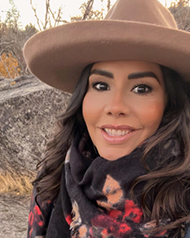
Adrienne Carousso has been a California educator for over 20 years and a member of the SNE since 2022. Adrienne has been a preschool teacher and director, a before/after-school program site lead, a middle school English teacher, and is currently enjoying her role as an instructional coach for Kings Canyon Unified School District in the central valley. She always aspired to become a teacher thanks to some of her inspirational teachers as well as films like "Stand and Deliver" and "Dangerous Minds." She has always been passionate about teaching students the importance of education and pushing them to reach their greatest potential.
In her role as an instructional coach, Adrienne dove deeply into gaining a better understanding of the Smarter Balanced assessments, Common Core State Standards, and learning how the resources from Tools for Teachers could help both teachers and students target their instruction and learning. This is when Adrienne decided to become an SNE member to "share the wealth" with the teachers and administrators she supports. She has worked one-on-one with teachers in her district who want to focus on how to leverage Tools for Teachers in their daily instruction as well as provided district-level professional development trainings to introduce Tools for Teachers to novice educators who can benefit from utilizing these tools right out of the gate! Her goal is to educate and empower as many teachers as she can about these valuable resources to ensure we are setting students up for success.
Matthew Cowan
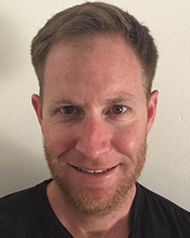
Matthew Cowan has been an educator for 13 years and is an instructional coordinator in the Saddleback Valley Unified School District in Orange County.
A member of the SNE since 2015, Matthew relishes the process of creating resources that teachers and students find useful. He believes it is important to create curricular experiences for students that are standards-aligned but also relate to real life. A creative person at heart, Matthew gets no greater enjoyment than creating resources and curriculum that speak to the interests and experiences of students across all academic levels.
Matthew views teaching as an opportunity to meet students where they are instructionally and lift them higher by exposing them to real life contexts and situations. He recommends educators try a variety of formative assessment strategies to determine which works for their specific student population. He adds there are many digital platforms that yield real-time data without sacrificing authenticity and 21st century learning in the process.
Tying the curriculum standards to real-life scenarios, while trying to meet every student where they are instructionally and emotionally can be challenging. Matthew strives to meet this goal by demonstrating a more authentic type of instruction, instead of just a “stand and deliver” style. One of his favorite formative assessment strategies is the digital Socratic Seminar because it allows students to collaborate, cull textual evidence, and share their arguments, verbally or digitally, in a way that is conducive to authentic learning.
Matthew and his students are featured in the CDE Formative Assessment in Action video series with his lesson on the Digital Hybrid Socratic Seminar. This video features Matthew demonstrating the formative assessment process as his grade nine ELA students debate the effects of texting and playing video games on student learning. The Socratic method is put to use in a unique manner, in which half the students discuss the issue verbally while the other students debate via blogging software. This engaging 13-minute video is available on the CDE’s Formative Assessment in Action Video Series web page.
Toni David
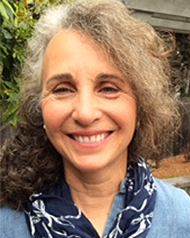
Toni David is a California educator involved in early childhood and elementary education for over 40 years and a member of the SNE since 2014. Currently, Toni is employed with Forest Grove Elementary in the Pacific Grove Unified School District. She believes using Tools for Teachers during the implementation of the Common Core State Standards (CCSS) is a great way to share resources and connect educators. Toni has found that participating in the SNE has increased her knowledge of the formative assessment process.
Toni’s favorite aspect of working with students is the mutual sharing between teachers and students in the learning process; she learns as much from her students as they learn from her. Toni enjoys finding creative ways to elicit evidence—her favorite formative assessment attribute—during a lesson. She advises other educators to incorporate new formative assessment strategies into their daily instruction and into existing foundational lessons.
Toni and her students are featured in the CDE video titled Developing Defining Sentences, which is part of the CDE Formative Assessment in Action video series. The video features Toni demonstrating the formative assessment process as her students work in collaborative groups to create defining sentences to enhance a written explanation of why it rains. This 12-minute video is available on the CDE's Formative Assessment in Action Video Series web page.
Myra Deister
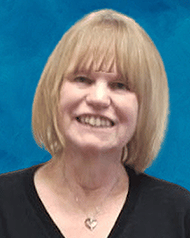
Myra Deister has been a California educator for more than 40 years and a member of the SNE since 2016. Myra is currently a high school mathematics and computer science teacher at Sunny Hills High School in the Fullerton Joint Union High School District. Myra enjoys making lessons accessible for all students.
Myra joined the SNE because she enjoys creating accessible lessons that help all students understand math standards. Tricky Transformations ![]() (account required) is one of the Tools for Teachers lessons that Myra has written. In the lesson, students work in pairs and the teacher has the option of implementing different formative assessment strategies—Fill in the Blank, Cut and Paste, or a Digital Drag and Drop Activity. She has also included guided notes so that the lesson is accessible to all students.
(account required) is one of the Tools for Teachers lessons that Myra has written. In the lesson, students work in pairs and the teacher has the option of implementing different formative assessment strategies—Fill in the Blank, Cut and Paste, or a Digital Drag and Drop Activity. She has also included guided notes so that the lesson is accessible to all students.
Stephanie Fortunato
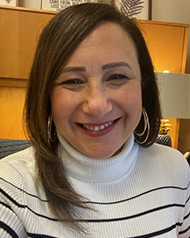
Stephanie Fortunato is a dedicated California educator with a career in education spanning nearly 25 years. Currently serving as Coordinator III, California School Leadership Academy, for the Curriculum and Instructional Services Division at the Los Angeles County Office of Education, Stephanie is a prominent advocate for enriching the educational landscape. Since joining the SNE in 2015, Stephanie's passion for education has driven her to spotlight the myriad of resources within the Smarter Balanced ecosystem, utilizing them to bolster teaching and learning practices. Her commitment extends to supporting educators statewide by championing the use of formative assessment and tailored strategies to address diverse learning needs within classrooms and ensure equity in educational outcomes.
Stephanie is a fervent believer in empowering educators with essential resources and tools that foster student confidence and cultivate authentic learning experiences. At the core of her work is the utilization of data to inform instructional decisions, ensuring a dynamic and responsive approach to teaching. A vocal advocate for the formative assessment process, Stephanie emphasizes its role in providing valuable feedback to both students and teachers. Her mission is to guide educators in deciphering and applying this feedback meaningfully, enabling them to plan purposefully for the next steps in their instruction.
Recognizing the diversity in students' learning styles, Stephanie underscores the significance of equipping educators with strategies to scaffold instruction while challenging students based on their academic levels. She is driven by the belief that creating lessons which motivate and engage students, tapping into their interests and experiences, is a key to success in education.
Stephanie actively engages and collaborates with the State Leadership Team, along with the expertise of leaders at the CDE and County Offices across the state. Her participation in summer workshops alongside fellow SNE members has been an inspirational journey, reaffirming the pivotal role of high-quality and effective resources, readily available in Tools for Teachers.
R. Noelle Gutierrez
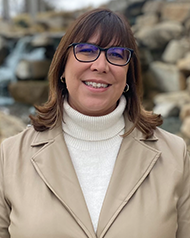
R. Noelle Gutierrez has been an educator for 20 years and a member of the SNE since 2019. Noelle began her educational career in Palm Springs Unified as a middle school English Language Arts and Social Studies teacher. She then worked for the district as the Secondary Literacy Coach before transitioning to administration as a middle school Assistant Principal. Noelle is currently serving students and educators as coordinator of Special Education, Learning and Improvement. In addition to her work for Palm Springs Unified School District, Noelle is a part-time consultant and travels the country training and coaching teachers on blended learning models such as station rotation.
Noelle is passionate about student learning and achievement. She enjoys designing and delivering engaging lessons that meet the needs of all students. As a teacher and instructional coach, Noelle consistently incorporated blended learning and collaborative conversations into lessons to make rigorous content and standards accessible for all learners. She frequently monitored student learning through the formative assessment process and provided differentiation for students as needed. Noelle continually promotes social emotional learning to meet the needs of the entire child. She is a proponent of Universal Design for Learning and finds ways to include the various aspects of it throughout lessons. As an administrator and consultant, Noelle continues to support teachers and site administrators in lesson design and learning models.
During the first years of California’s implementation of Smarter Balanced assessments, Noelle started using the Smarter Balanced Construct Relevant Vocabulary and Item Specifications during her instruction. She saw the benefit of such resources in helping her students meet state standards. This ultimately led her to join the SNE team. As an SNE member, Noelle presented ideas of how to best utilize these Smarter Balanced resources to improve student learning during the 2020 California Assessment Conference. She also shared her knowledge as part of CDE’s webinar series after the Smarter Content Explorer website was launched. Noelle continues to develop resources for Tools for Teachers such as Explanatory Writing: Revising Introductions ![]() (account required) and looks forward to her ongoing work as a member of the SNE.
(account required) and looks forward to her ongoing work as a member of the SNE.
Leisa Machado
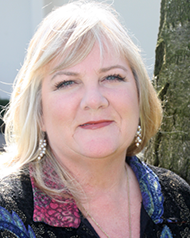
Leisa Machado has been an educator for over 30 years and joined the SNE in 2014. She previously taught secondary grades 7-12 in the Turlock Unified School District. She also taught graduate courses at Brandman University in the teacher education program.Currently Leisa supports and supervises beginning teachers for Teacher’s College at San Joaquin County Office of Education.
As an educator, Leisa strives to foster a love of learning for both students and teachers. She enjoys sharing many instructional strategies that inspire creativity, communication, collaboration, and critical thinking. To address the diverse learning needs in her classroom, Leisa encourages students to learn from one another, which in turn increases student engagement. Strategically designing lessons that capitalize on collaborative opportunities is key when providing differentiated strategies for students who learn in different ways.
Leisa is featured in the CDE’s Formative Assessment in Action Video Series with a lesson on Rhetorical Reading Review—A Close Look at Author, Text, and Audience. The video features Leisa using an article about the impact of video games on students to guide her students in annotating with various symbols used to convey the author’s central message, mood or tone, and point of view. Students then break up into designated groups to complete a poster based on collaborative discussion. Next, students use Leisa’s favorite formative assessment strategy, Text-on-Text Graffiti, to evaluate each other’s work and write comments/feedback to each other. Leisa enjoys this strategy because she believes it encourages higher levels of student engagement, authentic language skills practice, and critical reading/writing skills development.
In summarizing her experience with the State Network of Educators, Leisa states, “I have found it to be fascinating to work within the SNE community. Educators from across the country get together to collaborate and create high quality resources while sharing ideas about what each of their states is doing in the classroom. It has been very rewarding to be part of building Tools for Teachers because it allows teachers to share ideas within a large community of educators.”
Ami Szerencse
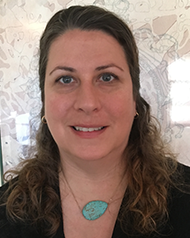
Ami Szerencse has been a California educator for more than 20 years and a member of the SNE since 2015. Ami is a high school English and English Language Development teacher in the Montebello Unified School District.
Ami has always had an interest in social justice and initially planned to pursue a career as a lawyer. Her plans changed, however, in college when she volunteered at a library helping adults learn to read. It was this experience that inspired Ami to enter a career in teaching.
Jeanine Taylor
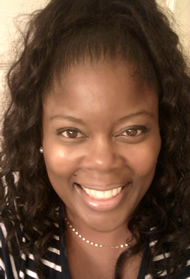
Jeanine Taylor has been a California educator for more than 20 years and a member of the SNE since 2015. Jeanine is currently a grade four teacher at Longfellow Elementary School in the Compton Unified School District. At a young age, Jeanine realized an affinity for teaching and creating and decided then to become a teacher. She enjoys offering students a variety of learning experiences from which they can gain new knowledge by building on concepts they are familiar with and opening doors to topics they have never explored.
Jeanine joined the SNE because she enjoys creating and using lessons that represent the diversity of her students and offer instructional practices using 21st century skills that will prepare them for college and careers. When implementing the formative assessment process, Jeanine especially enjoys using her creativity to plan mini-lessons and small group activities based on the evidence elicited from the targeted standard lesson. In this process, Jeanine addresses various learning styles, student interests, and academic levels.
